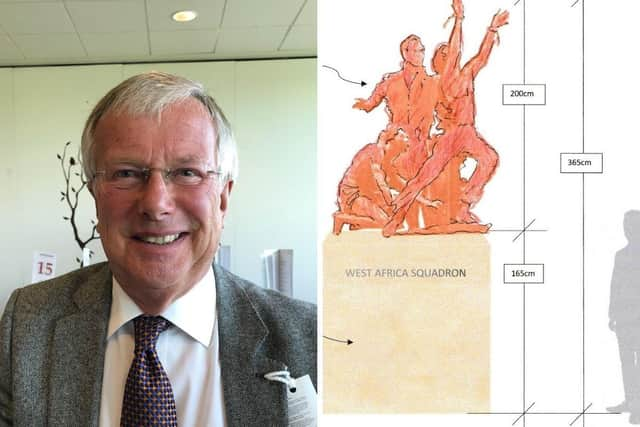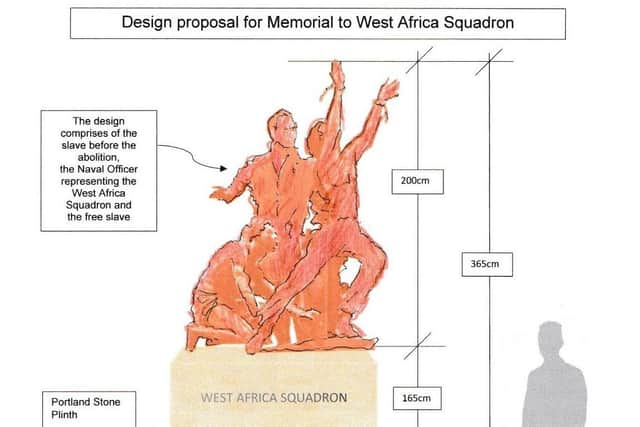Royal Navy: Calls for West Africa Squadron memorial to be built in Portsmouth to honour fallen sailors who freed slaves
and live on Freeview channel 276
The proposed memorial would honour those who served in the West Africa Squadron – a naval unit which enforced the abolition of slavery. The Royal Navy Museum estimates there that 1,587 sailors in the squadron died while tens of thousands of people were saved by personnel from a lifetime of servitude and torture.
Colin Kemp, Chairman of the West Africa Squadron Memorial fund, said the tribute would not only honour those who lost their lives but highlight Britain’s role in ending slavery. He told The News: “These guys did something great but at the moment there is no memorial to them, when there should be, and also no one seems to know that we were the first country to abolish slavery.
Advertisement
Hide AdAdvertisement
Hide Ad

“We then used our own men, our own ships and our money to enforce that ban. In The Royal Navy Museum, there is a small part dedicated to the West Africa Squadron, but there needs to be something quite major.”
The 76-year-old said he started learning about the unit by accident after doing some family research, thinking a member of his family was part of the it. Although this didn’t end up being the case, he started digging deeper into the squadron’s history.
Mr Kemp, of Chichester, said: “I pride myself in knowing about British history, but I’d never heard of the West Africa Squadron and never knew what they did.
“People, especially young people, should know that slavery was awful and we were the first to stop it. Most people have heard of William Wilberforce, who put the bill through parliament, but not about the West Africa Squadron.”
Advertisement
Hide AdAdvertisement
Hide Ad

Between 1807 and 1867, sailors freed over 150,000 Africans who were going to become slaves in America. According to the Royal Navy, sailors captured 1,600 slaves ships during that time.
Historic vessels such as such as the ten-gun sloop HMS Waterwitch were sunk by slavers trying to enforce the ban. The ship hunted down illicit vessels for 21 years before being destroyed.
Mr Kemp said during the height of the 1840s, the squadron took half of the naval budget and 2 per cent of the country’s GDP. “At the end of the Napoleonic war, we had the biggest navy in the world by far, and we used it to enforce the ban and free the slaves from foreign ships and impound those vessels,” he added.
The campaigner said there are several suitable locations in Portsmouth where the memorial could be built. An online fundraiser has been launched with the target of £70,000. Internationally renowned sculptor Vincent Grey has been commissioned to produce it.
Advertisement
Hide AdAdvertisement
Hide AdMr Kemp said: “It would create an ever-lasting memorial to the West Africa Squadron and Britain’s role in the ending of slavery, and be built in Portsmouth where it should be. I think we’ll get the fundraiser over the line. It’s a fair target which I think we’ll meet.”